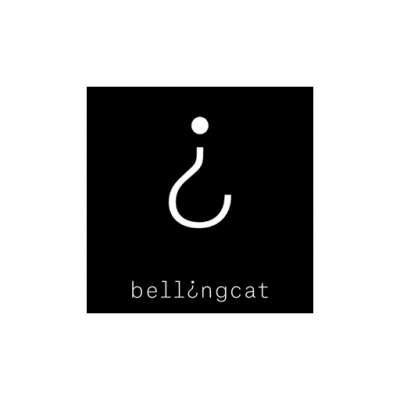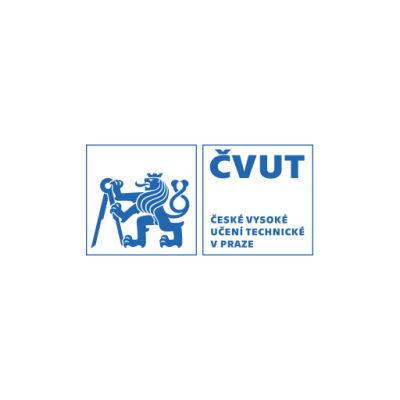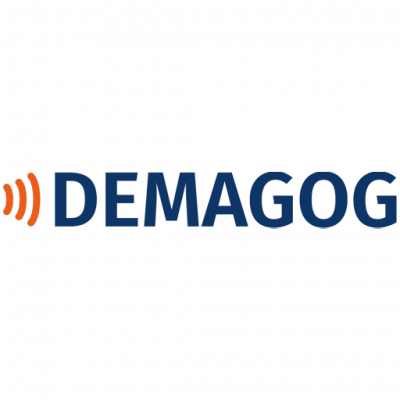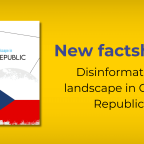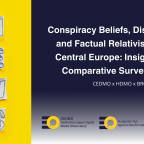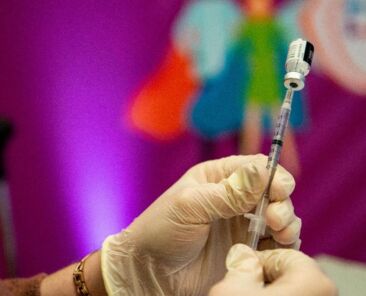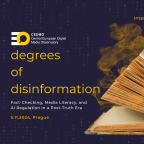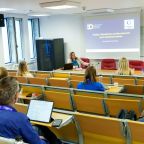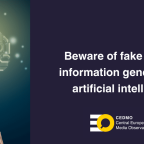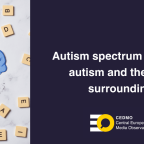About CEDMO
The Central European Digital Media Observatory (CEDMO), as an independent non-partisan multidisciplinary hub, aims to identify, research and prioritise the most critical sources and causes of information disorders in Central Europe (mainly the Czech Republic, Slovakia and Poland). This international consortium was created to propose a set of short and longer-term actions, as well as recommendations to help civil society, public institutions and the private sector respond to the declining trust in key institutions and help society to resist the effect of increasing exposure to mis- and disinformation.
By interacting and coordinating with European Digital Media Observatory (EDMO) and other regional EDMO hubs in EU, CEDMO will contribute to curbing threats posed by information disorders, including disenchantment with the democratic processes, and discord in civil society in Europe, and to building community and nation-wide resilience while protecting information ecosystems.
About CEDMO
The Central European Digital Media Observatory (CEDMO), as an independent non-partisan multidisciplinary hub, aims to identify, research and prioritise the most critical sources and causes of information disorders in Central Europe (mainly the Czech Republic, Slovakia and Poland). This international consortium was created to propose a set of short and longer-term actions, as well as recommendations to help civil society, public institutions and the private sector respond to the declining trust in key institutions and help society to resist the effect of increasing exposure to mis- and disinformation.
Our Partners
About CEDMO
The Central European Digital Media Observatory (CEDMO), as an independent non-partisan multidisciplinary hub, aims to identify, research and prioritise the most critical sources and causes of information disorders in Central Europe (mainly the Czech Republic, Slovakia and Poland). This international consortium was created to propose a set of short and longer-term actions, as well as recommendations to help civil society, public institutions and the private sector respond to the declining trust in key institutions and help society to resist the effect of increasing exposure to mis- and disinformation.
Our Partners
“AWWW… THANK YOU!!!” says a February 4, 2024 post on X, formerly Twitter, from an account called “il Donaldo Trumpo.”
“Stop buying all aquatic and processed products from Europe,” read Chinese text overlaid on a TikTok video uploaded on December 12, 2023.
“Boycott Israeli products! Easy way to identify Israeli products. If there are 729 numbers at the beginning of Barcode! It means Israeli product (sic),” reads a Facebook post from Nigeria shared alongside an image of a barcode.
“Zelensky Is DITCHING Ukraine for America,” says the caption of a December 21, 2023 TikTok post from Clayton Morris, a podcaster and former Fox & Friends host.
The one-minute, 56-second video was shared on Facebook here by a Malaysia-based user on June 29, 2022.
A July 29, 2022, tweet that has been shared and liked thousands of times makes the claim, sharing a screenshot of a text saying: “This is not food for mammals. Only BIRDS can process insect food in safe conditions. Birds digestion apparatus is COMPLETELY different as ours…”
“Warm coconut water will isolate and kill cancer cells!” reads a June 1 Facebook post here.
The image appearing to show a child trapped under concrete blocks was posted here on Facebook on October 19, 2023, and has since been shared more than 4,000 times.
“Turkiye is now sending support to (Palestinians),” says text over the October 30, 2023 TikTok video, showing an icon of a Palestinian flag.
At around 8:00 pm (1700 GMT) on Tuesday, the health ministry in Gaza reported an Israeli air strike had hit the Christian-run hospital in central Gaza City.
“Ivermectin reduces COVID death risk by 92%, peer-reviewed study finds,” says a September 28, 2022 Instagram post with more than 43,000 likes.
The one-minute, 56-second video was shared on Facebook here by a Malaysia-based user on June 29, 2022.
A July 29, 2022, tweet that has been shared and liked thousands of times makes the claim, sharing a screenshot of a text saying: “This is not food for mammals. Only BIRDS can process insect food in safe conditions. Birds digestion apparatus is COMPLETELY different as ours…”
“OK, we need only one statistic to prove the Earth is not too hot for humans,” Moore says in an August 1, 2023 post on Twitter, which is being rebranded as “X.”
“BREAKING: 86% of children suffered an adverse reaction from the COVID vaccine, according to Pfizer clinical trials,” says a July 15, 2023 tweet from Leading Report, which AFP has previously fact-checked for spreading misinformation.
The 18-second video was shared on Twitter on July 3, 2023. It purports to show explosions at the Eiffel Tower, smoke billowing around surrounding buildings and several fighter jets flying over the French capital.
The video, published on Facebook on March 7, 2022, has been viewed over 7.6 million times and shared more than 48,000 times.
“Battle on the Ukrainian front: Ukrainian soldier kissed unborn child goodbye,” reads the Chinese-language caption alongside the image posted on Twitter on March 2, 2022.



